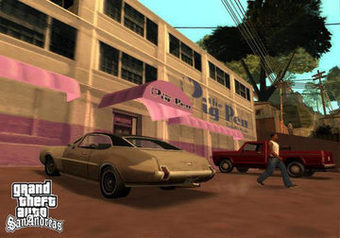Stellar Trademark Dispute Coming to Seattle Pizzerias? Probably Not.
I could easily eat pizza every day. So, I was particularly interested when I came across two Seattle pizzerias that both call their pizza “Stellar.”
On the one hand, we have Stellar Pizza, Ale, & Cocktails in Seattle’s Georgetown neighborhood. It’s no stranger to trademark disputes, reportedly having been “bullied” into changing its name from Stella’s Pizza, Ale, & Cocktails a few years ago.
On the other hand, we have Zeke’s Pizza, which delivers pizzas throughout the Seattle area from six locations. Lately, I’ve noticed that Zeke’s has started using the slogan “Stellar Pie” on the sides of its delivery boxes.
Does Stellar Pizza care? Probably not.
Could it do anything about it if it did? Maybe. It’s used STELLAR as the dominant part of its trade name and trademark for at least a few years. Sure, “stellar” means “outstanding” and, therefore, the mark is self-laudatory and considered descriptive, but if Stellar Pizza has built up secondary meaning, it might have cause to complain. STELLAR also is arguably suggestive — thus protectable from inception — if it takes a little imagination to link “stellar” with outstanding (as in a “stellar performance”) when the word is used in connection with pizza. But it’s probably descriptive, and Zekes has as much right as the next guy to use “stellar” in its descriptive, non-trademark sense.
So which place serves the better pie? Stellar Pizza, hands down, though my firm orders many pizzas from Zeke’s, and I ain’t complaining.
Failure to Allege Fame Results in Denial of Default Judgment in Dilution Case
On Nov. 4, the Northern District of California provided a reminder that a dilution claim requires fame — on a nationwide basis. Failure to allege nationwide fame was sufficient reason for the court to deny the plaintiff’s motion for entry of default judgment in Corsair Memory, Inc. v. Corsair7.com.
Plaintiff sells high-performance computer components under its CORSAIR trademark.
Defendant Corsair7.com allegedly is an Internet domain name that was controlled by defendant Donju Son, who resides in Hong Kong. The Web site associated with Corsair7.com allegedly marketed sexually-explicit services.
Defendants failed to answer the complaint, and plaintiff obtained an order of default.
Judge Saundra Brown Armstrong denied the motion because the complaint merely alleged niche market fame:
“Corsair fails to allege sufficient facts to show its mark is ‘famous.’ In particular, while Corsair alleges its mark is well known to computer manufacturers who purchase its products, Corsair never alleges facts which would show its mark is well known by the general consuming public of the United States. This flaw is fatal. In 2006, Congress expressly amended § 1125(c)(2) to deny dilution protection to marks which were only ‘famous’ in ‘niche markets.’ Again, as already stated, this amendment reinforces that the policy that only ‘famous’ marks, such as ‘Tiffany,’ are the types of marks which may claim dilution, as this protection bars almost any other use of the mark or modified mark by persons other than the owner. Because Corsair has failed to allege facts demonstrating its mark is ‘famous,’ it may not claim dilution against Son under § 1125(c).”
Niche fame stopped making the grade two years ago, gang. Nationwide fame is what’s needed these days, which CORSAIR doesn’t have.
The case cite is Corsair Memory, Inc. v. Corsair7.com, 2008 WL 4820789, No. 08-3460 (N.D. Calif. Nov. 4, 2008).
First Amendment Protects Grand Theft Auto Against Trademark Infringement
The First Amendment protects the makers of the Grand Theft Auto: San Andreas video game against claims of trademark infringement, the Ninth Circuit found Nov. 5.
In E.S.S. Entertainment 2000, Inc. v. Rock Star Videos, Inc., the owner of the Play Pen strip club sued the video game maker that allegedly depicted the club and its trademark in its fictional version of Los Angeles called “Los Santos.” In the game version, the club is called the “Pig Pen” (depicted below).

The artists who developed the game took inspiration from photographs of the Play Pen but used photos of other East Los Angeles locations to design other aspects of the fictional “Pig Pen.”
In 2005, E.S.S. filed suit in the Central District of California for state and federal trade dress infringement and unfair competition. The heart of its complaint was that Rock Star used its logo and trade dress without authorization and created a likelihood of confusion among consumers as to whether E.S.S. endorsed or is associated with the game.
Rock Star moved for summary judgment, arguing in pertinent part that regardless of whether it infringed E.S.S.’ trademark rights, the First Amendment protects it against liability.
The district court granted the motion (in a 55-page opinion), and E.S.S. appealed.
Applying the “Barbie Girl” case of Mattel, Inc. v. MCA Records, Inc., 296 F.3d 894 (9th Cir. 2002), which protected MCA’s right to publish a song with Mattel’s BARBIE trademark in its title, the Ninth Circuit affirmed.
The court noted that “ESS argues both that the incorporation of the Pig Pen into the Game has no artistic relevance and that it is explicitly misleading. It rests its argument on two observations: (1) the Game is not ‘about’ ESS’s Play Pen club the way that ‘Barbie Girl’ was ‘about’ the Barbie doll in MCA Records; and (2) also unlike the Barbie case, where the trademark and trade dress at issue was a cultural icon (Barbie), the Play Pen is not a cultural icon.”
The court acknowledged these factual differences but found they missed the point. “Under MCA Records and the cases that followed it, only the use of a trademark with ‘no artistic relevance to the underlying work whatsoever’ does not merit First Amendment protection. In other words, the level of relevance merely must be above zero. It is true that the Game is not ‘about’ the Play Pen the way that Barbie Girl was about Barbie. But, given the low threshold the Game must surmount, that fact is hardly dispositive. It is also true that Play Pen has little cultural significance, but the same could be said about most of the individual establishments in East Los Angeles. Like most urban neighborhoods, its distinctiveness lies in its ‘look and feel,’ not in particular destinations as in a downtown or tourist district. And that neighborhood, with all that characterizes it, is relevant to Rockstar’s artistic goal, which is to develop a cartoon-style parody of East Lost Angeles. Possibly the only way, and certainly a reasonable way, to do that is to recreate a critical mass of businesses and buildings that constitute it. In this context, we conclude that to include a strip club that is similar in look and feel to the Play Pen does indeed have at least ‘some artistic relevance.’”
Commentary on the appeal from Eric Goldman here, and on the underlying district court decision from the Gamasutra here.
The case cite is E.S.S. Entertainment 2000, Inc. v. Rock Star Videos, Inc., __ F.3d __, 2008 WL 4791705, No. 06-56237 (9th Cir. Nov. 5, 2008).
Charter Construction Settles Logo Dispute with Charter Mechanical Contractors



Plaintiff Charter Construction’s logo (top), with
defendant Charter Mechanical’s old (middle) and new logos
Plaintiff Charter Construction, Inc., is a Seattle-based general contractor with an office in Portland, Ore.
Defendant Charter Mechanical Contractors, Inc., is a Tualatin, Ore.-based mechanical contractor that, according to plaintiff, does business in both Washington and Oregon.
In April, plaintiff filed a trademark suit against defendant in the Western District, alleging confusing similarity between the parties’ logos.
Defendant never answered the complaint. However, the parties settled their differences and on Oct. 28 the court dismissed the case based on the parties’ stipulation.
STL is far from privy to the terms of the settlement, but judging by the defendant’s Web site, it appears that defendant has changed its logo.
The case cite is Charter Construction, Inc. v. Charter Mechanical Contractors, Inc., No. 08-5219 (W.D. Wash.).
Will Mooberry Be Next on Pinkberry's List?
 This weekend in Seattle’s Ballard neighborhood I came across Mooberry, another frozen yogurt shop that uses BERRY in its name as well as a swirl as part of its design mark.
This weekend in Seattle’s Ballard neighborhood I came across Mooberry, another frozen yogurt shop that uses BERRY in its name as well as a swirl as part of its design mark.
STL readers may recall that the frozen yogurt maker Pinkberry filed suit in the Western District last month against a Seattle-based frozen yogurt shop called Yoberry. At issue was Yoberry’s allegedly confusingly similar YOBERRY trademark and swirl design.
Just gotta wonder if Mooberry will be next on Pinkberry’s list.